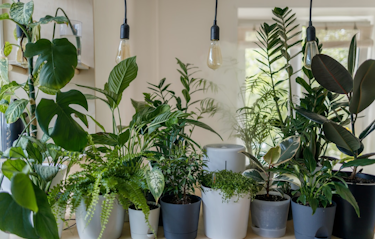
How To Trim Pothos
- Easy Care
- Araceae
- Large
- Evergreen Tropical Vines
We independently select everything we recommend. When you buy through our links, we may earn a commission.
This article explores the potential risks of Monstera deliciosa to cats. We will also discuss the symptoms of Monstera poisoning in cats and what steps to take if your cat ingests this plant.
Published on 22 August, 2023 by Oliver Rouane-Williams
There is conflicting information on the internet about the toxicity of Monstera leaves to cats. While a cat would have to ingest a large amount of the plant to cause serious damage, the ASPCA officially classifies Monstera as toxic to cats and dogs.
Monstera, also called split-leaf philodendron, is toxic to cats due to insoluble calcium oxalate crystals in its leaves. These crystals are also present in other plants of the Araceae family.
If a cat eats a Monstera plant, it may experience a range of symptoms that varies in severity depending on the amount of plant material ingested and the animal’s size.
When cats nibble on the plant leaves, they experience an intense burning sensation in their mouth, excessive drooling, and even life-threatening symptoms. One of the most common symptoms of Monstera poisoning is oral irritation in the cat’s mouth, which causes drooling, pawing at the mouth, and difficulty swallowing. Cats may also experience vomiting, diarrhea, and loss of appetite.
In more severe cases, Monstera ingestion leads to respiratory distress, such as coughing, wheezing, or difficulty breathing. Cats may also develop skin irritation or rash if they come into contact with the plant sap.
If untreated, Monstera poisoning causes more serious health issues, such as organ failure or death.

You must seek veterinary care immediately if you suspect your cat has ingested Monstera or is showing any symptoms of poisoning.
While Monstera is not typically fatal to cats, it causes serious health issues if left untreated. The symptoms of Monstera poisoning are similar to those of other types of poisoning, making it difficult to diagnose without veterinary care.
At the vet’s office, they will perform a physical exam and may conduct additional tests, such as x-rays or blood work, to determine the extent of the poisoning and any damage that may have occurred. Treatment may include medication to control vomiting and diarrhea, intravenous fluids to prevent dehydration, oxygen therapy, or other supportive measures for respiratory distress.
Sometimes, your vet may need to hospitalize your cat for observation and supportive care until they recover.
While Monstera ingestion can cause a range of symptoms in cats, there is no evidence to suggest that it causes kidney failure.
That being said, it’s important to note that any poisoning potentially damages organs such as the kidneys if left untreated. This is why it’s crucial to seek veterinary care immediately if you suspect your cat has ingested Monstera or is showing any poisoning symptoms.

The most toxic plant to cats is the lily.
Lilies are common houseplants often found in floral arrangements, but they are extremely toxic to cats. All parts of the plant, including the stem, flowers, leaves, and pollen, contain toxins that cause acute kidney failure in cats.
If a cat consumes even a small amount of a lily plant, it causes severe kidney damage that can be fatal if left untreated. Symptoms of lily poisoning in cats include vomiting, diarrhea, loss of appetite, lethargy, and changes in urination.
Other indoor plants toxic to cats include:
Aloe
Amaryllis
Caladium
Christmas Berry
Croton
Eucalyptus
Ficus
Holly Berry
Mistletoe
Oleander
Peace lily
Philodendron
Poinsettia
Pothos
Sago Palm
Snake Plant
Many popular houseplants can be toxic to cats if ingested, so choosing non-toxic plants is important if you have feline friends at home. Here are some houseplants generally considered safe for cats:
African violet (Saintpaulia ionantha)
Bamboo palm (Chamaedorea seifrizii)
Boston fern (Nephrolepis exaltata)
Calathea (Calathea spp.)
Cast iron plant (Aspidistra elatior)
Christmas cactus (Schlumbergera)
Parlor palm (Chamaedorea elegans)
Peperomia (Peperomia spp.)
Polka dot plant (Hypoestes phyllostachya)
Ponytail palm
Prayer plant (Maranta leuconeura)
Spider plant (Chlorophytum comosum)
However, even with non-toxic plants, it’s important to keep them out of reach of curious kitties and monitor them for any signs of ingestion or irritation. Vining plants that can be grown in a hanging basket or wall planter are the perfect solution to keep plants away from cats,
As pet owners, we must keep these plants away from our furry friends and opt for safe plants such as cat grass, catnip, and citrus fruits. If you believe your cat has ingested any part of the Monstera plant, seek immediate veterinary care. You can also contact Animal Poison Control or ASPCA for guidance on what to do in case of plant toxicity.
Delivered to your inbox every Saturday morning








